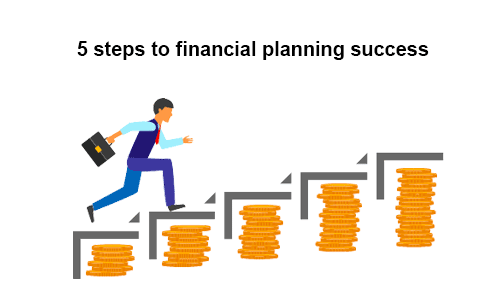Best Assets to Invest In UAE
In the vast and dynamic world of finance, identifying the most promising securities for investment is a pursuit that demands both insight and acumen. Whether you are a seasoned investor seeking to optimise your portfolio or a novice venturing into the realm of financial markets, understanding the top-performing securities is crucial to realising your wealth-building goals.
In this article, we will learn more about the best securities for intelligent investments. From established assets like stocks and bonds to cutting-edge options like exchange-traded funds (ETFs), we will analyse the potential risks and rewards each asset class holds.
Armed with this knowledge, you can truly make well-informed decisions to navigate the markets with confidence and seize the opportunities that lie ahead!
Table of Content
The Top Assets to Invest in This Year
Let’s discuss the top assets to invest your money in -
Short-term Certificates of Deposit
Banks issue Certificates of Deposit (CDs), which generally offer more attractive interest rates compared to savings accounts. Opting for short-term CDs becomes advantageous when anticipating interest rates to increase, as they enable reinvestment at higher rates upon maturity.
A Certificate of Deposit (CD) is operated by a financial institution disbursing interest to you at regular intervals. Upon reaching its maturity, the CD returns your initial principal along with any accumulated interest.
Due to the secure nature and higher returns of CDs, retirees who can afford to set aside funds for some time without immediate income find them a favourable choice. For risk-averse investors, especially those with specific timeframes for accessing funds, CDs offer a slightly higher yield than traditional savings accounts in exchange for tying up their cash.
Dividend Stock Funds
Dividend stocks offer investors the combined benefits of steady income similar to bonds and the growth potential associated with individual stocks and stock funds. These regular cash payments, made by companies to shareholders, are often linked to well-established and profitable enterprises, providing a sense of stability. Although the share prices of dividend stocks may not experience rapid growth like those of growth-stage companies, their appeal lies in the consistent dividends they provide.
Investors of all experience levels, whether just starting out or heading into retirement, will find that certain types of dividend stocks suit their investment journey quite effectively.
For instance, younger investors may find dividend growers appealing. This is because these shares are associated with companies with a proven history of consistently increasing their dividend payouts. Although their current yields may not be high, the potential for future growth is promising. Over an extended period, when combined with a dividend reinvestment plan, this strategy can yield returns comparable to non-dividend-paying growth stocks.
Conversely, senior investors seeking stability or fixed income may opt for stocks that offer reliable dividends. For them, reinvesting dividends over a short term might not be the goal - taking dividends as cash instead could be a strategic element of their fixed-income investment plan.
Real Estate
Conventional real estate investment typically involves purchasing a property with the intention of selling it later for a profit or generating fixed income through rental payments. However, alternative, more hands-off methods to invest in the real estate market are also there.
One prevalent approach is through Real Estate Investment Trusts (REITs), which are companies owning income-generating properties like malls, hotels, and offices. These REITs offer regular dividend payments to investors.
Another increasingly popular option involves real estate crowdfunding platforms, where investors pool their money to invest in various real estate projects.
These methods are particularly attractive to investors seeking diversification or higher returns, but it's essential to note that real estate investments are relatively illiquid. Hence, individuals should avoid investing funds that they might need quick access to and consider them as part of a well-rounded investment portfolio.
S&P 500 Index Funds
An S&P 500 index fund comprises around 500 of the largest American companies, making it a portfolio that includes many of the world's most successful companies. Among its prominent members are Amazon, Berkshire Hathaway, Apple, and more.
For those seeking higher returns compared to traditional banking products or bonds, an S&P 500 index fund offers a viable alternative, albeit with higher volatility. With that said, it proves to be an excellent choice for novice investors due to its broad and diversified exposure to the stock market. Moreover, any stock investor aiming for a diversified investment and willing to remain invested for at least 3 to 5 years will find an S&P 500 index fund to be a favourable option.
Money Market Funds
Money market mutual funds represent an investment opportunity distinct from money market accounts, which are akin to bank deposit accounts like savings accounts. By investing in a money market fund, your funds are allocated towards a selection of secure, short-term government, bank, or corporate debt.
This investment option is suitable for money that you may require in the near future, although it does entail a slightly higher market risk. Investors usually go for money market funds to maintain a portion of their portfolio in a safer option compared to stocks or to temporarily hold funds earmarked for future investments.
While money market funds are indeed investment products, it is essential to recognise that they neither yield higher returns nor expose you to the same level of risk as other investments listed. Instead, the growth of money market funds resembles the yields of high-yield savings accounts.
Government Bonds
A government bond refers to a government-issued debt security, which serves to finance government expenditures and meet obligations. Periodic interest payments, known as coupon payments, can be expected from these bonds. Being backed by the issuing government, national government bonds are generally perceived as low-risk investment options.
Government bonds are primarily meant to support the funding of deficits in the federal budget as well as to raise capital for various projects such as infrastructure development. Investing in government bonds offers several advantages, including a reliable source of interest income, with minimal risk of default. Moreover, government bonds boast a liquid market, facilitating easy resale when needed. Additionally, investors can access government bonds through mutual funds and ETFs, making them a convenient and accessible investment avenue.
ULIPs
Unit Linked Insurance Plans, commonly known as ULIPs, represent a unique blend of insurance and market-linked investments in a comprehensive financial solution. These plans are intricately tied to the capital market, allowing investors the freedom to choose between equity or debt funds and catering to their individual risk appetites. With the primary goal of capital appreciation over the long term, ULIPs provide the added advantage of insurance coverage.
The attractiveness of ULIPs lies in their ability to outshine standalone investments or insurance options. By investing in ULIPs, individuals can access the benefits of the share market without exposing themselves to significant risks, all while ensuring a safety net in the form of life cover for their families.
Let's delve into some reasons why ULIPs stand as an excellent investment choice -
- Good returns: Staying invested in ULIPs for a period of 10 years or more can yield substantial returns.
- Investment variety: ULIPs offer diverse schemes - ranging from aggressive equity-focused plans to conservative debt-oriented ones - which allows investors to make investment choices that align with their risk tolerance.
- Flexibility: ULIPs enable easy switching between different schemes, empowering investors to capitalise on changing market scenarios and optimise their investment opportunities.
- Liquidity: In times of emergencies or unfortunate events, ULIPs permit partial withdrawals to meet immediate financial requirements.
Mutual Funds
A mutual fund is a financial product that gathers money from multiple investors to invest in stocks, bonds, or other assets. It provides an affordable way for investors to diversify their funds, spreading investments across various assets to protect against losses in any single investment.
For long-term goals like retirement planning, mutual funds offer an easy route to gain exposure to the stock market's potentially higher returns without the need to handle individual stocks. Some funds have specific criteria for investing, like focusing on technology companies in the biotech industry or high-dividend-paying corporations, allowing investors to target particular niches.
You can obtain mutual funds directly from fund managing companies or through discount brokerage firms. Several mutual fund providers provide no-transaction-fee options (no commissions are charged) along with tools to assist you in selecting suitable funds.
Exchange-Traded Funds
Exchange-traded funds, commonly known as ETFs, share similarities with mutual funds, mainly pooling investments to create a diversified portfolio of securities. However, the key distinction lies in their selling method. Investors can purchase ETF shares similarly to buying individual stocks.
If you possess a long-term investment perspective, ETFs like index and mutual funds can make for an excellent choice. Furthermore, they are particularly advantageous for investors who lack the necessary funds to meet the minimum investment thresholds of mutual funds, as ETF share prices may be lower in comparison.
Similar to stocks, ETFs have ticker symbols and can be accessed through brokerages, making them easily available to interested investors.
Things to Consider When Choosing the Right Investment Options
To build a pool of wealth as an investor, it’s important to consider the following factors -
- Considering Your Timeline: To meet near-term requirements, it's crucial to have easily accessible and secure investments. For long-term goals, on the other hand, you can afford to invest in assets with higher volatility.
- Assessing Your Risk Tolerance: If you're comfortable with short-term market swings, embracing more risk can lead to potentially higher long-term returns. However, keep in mind that diversifying your investments can help stabilise overall returns.
- Evaluating Your Finances: Some investments demand minimum balances or initial investments. However, several providers and plans cater to various budgets if you know where to look.
- Determining Your Need for Assistance: DIY investors can explore many investment options through brokerage accounts. If you're uncertain about the best choices for your situation, you can turn to robo-advisors that offer low-cost, automated services to create a tailored investment portfolio based on your criteria. Additionally, banks offer accessible short-term investment options like savings accounts.
More From Investment
- Recents Articles
- Popular Articles












